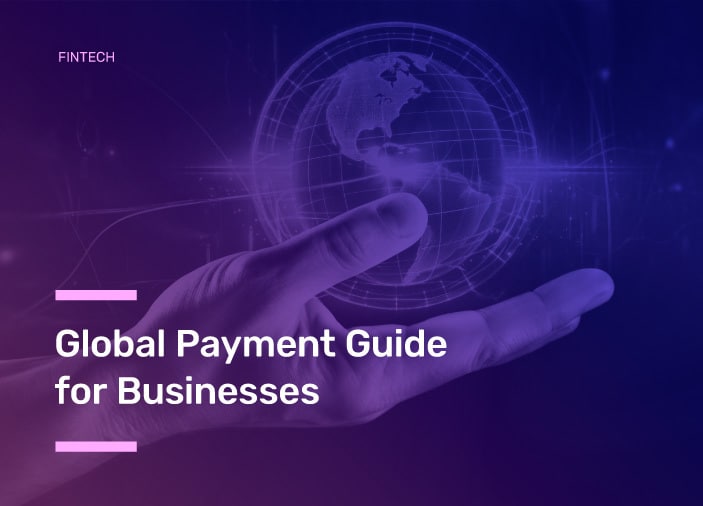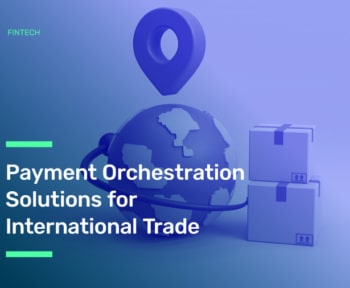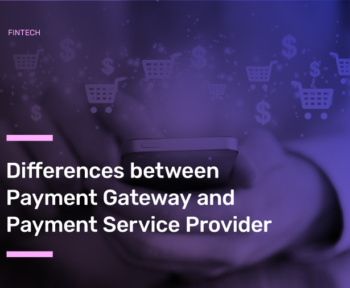
Table of Contents
- Receiving Payments Abroad & Advantages for Businesses
- How to Determine an Global Payment Receipt Strategy?
- Payment Receiving Options for Businesses Abroad
- Advantages of Receiving Global Payment with Craftgate
- Conclusion
The rapid advancement of today’s technology and the globalization of world trade are enhancing businesses’ ability to compete internationally. In this context, the opportunity for companies to receive payments from abroad by expanding their operations across borders plays a significant role in their growth and expansion strategies. Exporting and receiving payments from abroad bring opportunities such as reaching new customer segments, increasing revenue, and gaining a competitive advantage. Designing the process of accepting payments abroad and determining the steps required requires profound knowledge and expertise.
Additionally, examining specific parameters related to consumer habits in the target market becomes necessary. In this article, we will provide important information to help businesses take the proper steps in receiving global payment and discuss the advantages they can gain throughout the payment process with Craftgate payment orchestration.
Receiving Payments Abroad & Advantages for Businesses
When large-scale businesses with a significant operational network and brand awareness domestically expand their operations abroad, they prefer to progress with a separate e-commerce site for each region or opt for localization efforts. When examining small to medium-sized businesses, they sell products abroad through marketplace platforms such as Aliexpress, Amazon, eBay, and ETSY. Operating in new markets and receiving payments from abroad offer many advantages for businesses in both scenarios. We can list these advantages as follows:
- Global Presence: Expanding products or services abroad and initiating the process of receiving payments from abroad increases the brand’s opportunity to exist in the worldwide market. This provides the chance to meet new customers and cater to consumer demands in different countries.
- Increased Revenue: Considering the volatility of exchange rates, the opportunity to receive payments from abroad by operating in new markets is a factor that increases the business’s revenue. Although different cost factors come into play, working with a more extensive potential customer base rises business sales volume and profit margin in the medium to long term.
- Innovation and Competitive Advantage: Initiating international operations and receiving payments from abroad, especially for brands with high domestic visibility, provide a competitive advantage when operating in new markets.
Moving operations abroad and the opportunity to receive payments from abroad are significant steps to open up to international markets and achieve global success.

How to Determine an Global Payment Receipt Strategy?
Correctly determining payment strategies for companies wishing to move their operations abroad forms the foundation of their success in the target market. Cultural differences in each country naturally affect payment habits. For example, while cash on delivery or bank transfers may be more common in some countries, credit card payments are widely preferred in others. Understanding customer behaviors and preferences in the target market is crucial for businesses to offer the most suitable payment options.
Therefore, for brands looking to expand their operations abroad, learning the cultural habits of consumers in the target market is the first step they can take to draw the right payment strategy. Another important factor is for businesses to be aware of globally existing and frequently preferred payment methods when receiving payments from abroad. You can check our “What Are Online Payment Methods” article for this.
Rising payment trends worldwide, in terms of both consumer needs and business priorities, can be listed as follows:
Online Payments:
We see that online payments are becoming increasingly popular. According to the McKinsey Consumer Trends in Digital Payments Survey, digital payments reached a penetration rate of only 89% in the U.S. in 2022. Strengthening the online payment infrastructure gives businesses a significant advantage, offering a secure and smooth online payment experience.
Alternative Payment Methods:
Alternative payment methods continue to be popular globally, as they are in our country. Among these methods, which are alternatives to traditional payment methods such as credit card payments, the most commonly used ones are wallets, cash on delivery, prepaid cards, and post-order payment in-store. In our country, we mostly see the use of closed-loop or open-loop wallets among these methods.
For example, the Closed-Loop Wallet solution, allowing customers to use the balance they load on their website/mobile applications again, is essential for improving customer experience and conversion rates. Alternative payment methods can give businesses more flexibility and a competitive advantage internationally.
Buy Now, Pay Later:
The Buy Now, Pay Later concept is a type of financing that allows consumers to defer the payment of the products they order to a future date, usually without interest. This concept has become widespread, especially in European countries where the installment payment concept is less common.
Payment Receiving Options for Businesses Abroad
For businesses operating in Turkey that aim to expand their products or services internationally, receiving payments from abroad is one of the most crucial topics to consider. Simply put, a business looking to initiate the process of accepting payments from abroad has two options:
- Adjusting the virtual POS systems used in Turkey to receive payments from abroad and complete the relevant agreements.
- Making agreements with the local payment methods in the country where they want to establish a presence.
Both options have their advantages and disadvantages. In the first option, businesses can observe the target market, learn consumer habits, and identify market potential without requiring a significant operation. However, there may be a decrease in payment success rates because credit cards of their international customers are closed to foreign payments. This possibility is an aspect that needs to be evaluated, considering both testing the pulse of the target market and balancing the potential loss of revenue.
Businesses that want to work with leading payment methods in the target market in receiving payments from abroad face some operational requirements. Depending on the needs of the organizations they will make agreements with, many payment organizations abroad impose certain conditions, such as establishing a company in that region. However, businesses often prefer this option due to the trust it creates in the customer base in that region and the advantages offered on a commission basis.
So, what payment methods can businesses work with when receiving payments from abroad? In accepting payments from abroad, global payment organizations such as Klarna, Stripe, PayPal, Braintree, Payoneer, Afterpay, and Alipay offer various advantages for businesses and consumers with alternative payment methods.
In evaluating all the opportunities these players offer and where they are actively involved, your business must carefully assess the possibilities. For example, Klarna, established in Sweden, provides services in Australia, Austria, Belgium, Canada, Denmark, Finland, France, Germany, and the United States, including its home country. Klarna, which includes various alternative payment methods, provides information about which way is valid in which country here. You can check the areas where Stripe, widely used in different regions of the world, is available here.

Advantages of Receiving Global Payment with Craftgate
Today, numerous payment methods are available for an e-commerce brand to receive payments domestically. When receiving payments from abroad, the number of options increases even more. Aside from proper market research, accurately identifying consumers’ payment habits in the relevant region is an entirely different process. Taking all of this into account, the process of receiving payments from abroad is an area that requires deep expertise and experience. With the right technologies, businesses embarking on the global payment process are gaining a competitive edge.
With payment orchestration provided by Craftgate, businesses can access and manage any payment method they desire domestically and internationally, all from a single point. Moreover, they can reduce their expenses by directing payments to the most advantageous virtual POS/payment institution for them. Even in case of interruptions in virtual POS/payment institutions or systemic payment errors, businesses can increase their turnover and conversion rates by still receiving payments.
Being the first choice for Turkey’s leading retail brands in foreign payment processes, Craftgate offers its product technology and conducts technical knowledge transfer with its expert payment team. When businesses want to continue using the virtual POS, they use domestically for foreign payments or when they want to work directly with payment institutions abroad, Craftgate becomes an excellent solution partner for them.
In receiving payments from abroad, after businesses meet the operational and commercial requirements of the organization they want to agree with, sharing technical information about that organization with Craftgate is sufficient. Then, companies can start receiving payments from abroad with the relevant payment institution.
By integrating with Craftgate from a single point, businesses can explore which payment institutions they can start working with abroad on our International Payment Methods page.
Conclusion
In today’s world, taking brand awareness beyond borders is on the agenda of many businesses. At this point, a company that wants to expand internationally and initiate the process of receiving payments from abroad must consider many parameters and design its strategy successfully from start to finish. The most important of these parameters is the payment step because the impact of the payment step on the consumer’s purchasing decision is significant.
Receiving payments from abroad brings many advantages for businesses; however, it is an operation that requires businesses to embark on the right solutions. Companies can have a strong presence in new markets when they work with the right players and design their payment infrastructure smoothly.
To share our experience and knowledge in the payment field, we regularly publish content on the Craftgate Blog.
If you want to stay informed about our new blog posts on fintech and the payment ecosystem, subscribe to the Craftgate Newsletter.






